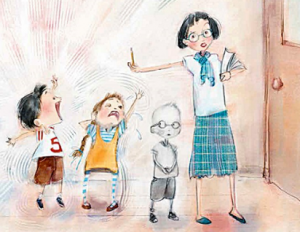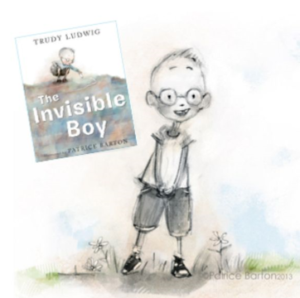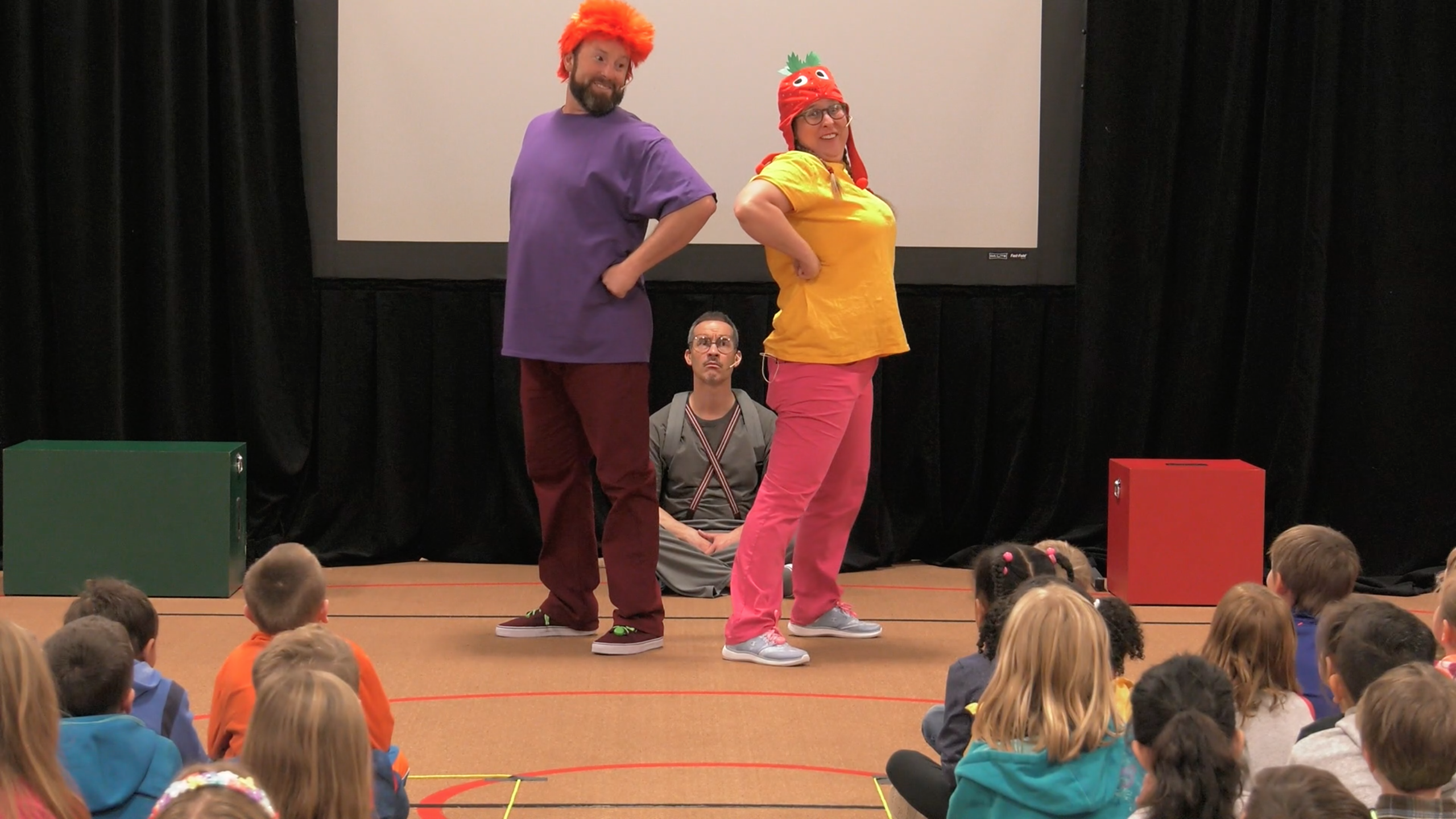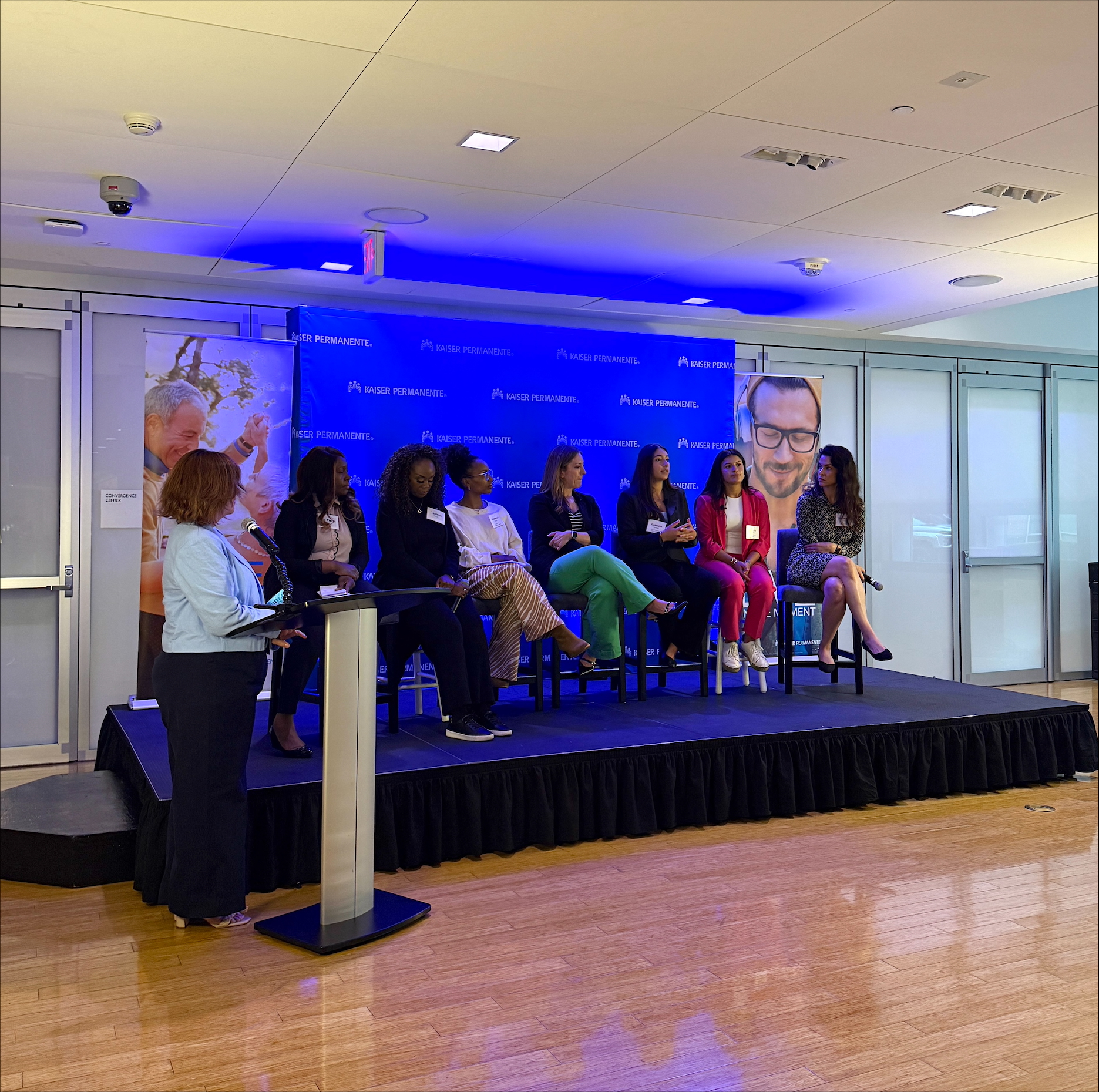Learn about a new Educational Theatre performance in Colorado in this guest blog by Brian Harper, manager for Kaiser Permanente Educational Theatre in Colorado.
 May is Mental Health Awareness month, and I would like to highlight something that many of us like to keep invisible, our feelings.
May is Mental Health Awareness month, and I would like to highlight something that many of us like to keep invisible, our feelings.
In Fall of 2017, Kaiser Permanente’s Educational Theatre in Colorado added a workshop called Invisible Feelings to our touring programs. This 25-minute workshop is based off the popular children’s book, “The Invisible Boy” by Trudy Ludwig, and is designed for kindergarten through first grade classes. It is presented in conjunction with other social/emotional programs for upper elementary grades.
The first line in “The Invisible Boy” asks, ‘Do you see Brian the invisible boy?’ Even though Brian is right there, the illustrator, Patrice Barton, draws Brian with just a pencil outline – no bright colors or shading like the other characters. Brian is a quieter child, sitting alone in the lunchroom. He spends most of his time drawing and imagining he is playing in the pictures he creates. He is invisible in his class… until a new student arrives and notices the gifts Brian brings.
I would guess that as adults we respond to this story with things like, “that’s so sweet” or “how cute”. When we hear this story, we are using abstract thinking – thinking about the full picture. We are generalizing and conceptualizing. Abstract thinking doesn’t develop until the age of 16.
The students we present to are using concrete thinking – focusing on the here and now. They think of themselves as the center of the universe, and they are developing reasoning, learning right from wrong, and understanding how to express and read emotions. They are in ‘learning about life’ mode intellectually, physically and emotionally, and at Kaiser Permanente, we are trying to improve health: mind, body and spirit. It seems like a perfect time to learn about life – a healthy, long life ahead.
When young students see and hear Brian’s story, they must pause before they respond. They don’t automatically connect with Brian – they must first practice empathy. So why is empathy so important? There is a study by The Pennsylvania State University and Robert Wood Johnson Foundation that found “Substantial recent attention has focused on how social emotional skills in childhood influence our long-term well-being. These skills encompass key interpersonal (e.g., social responsibility, relationship skills) and intrapersonal (e.g., emotions management, self-regulation) competencies that are building blocks for healthy human development. While the intrinsic value of social emotional skills is broadly recognized, there is also growing evidence of their importance to success across the lifespan.
Experts in education, psychology, public health, and economics focus on the value of these skills — sometimes referred to as “non-cognitive,” “character,” or “soft skills”— and such research can be instrumental in shaping policy and programming decisions. These studies have shown that good social emotional skills can lead to improved outcomes in education and employment as well as physical and mental health, and also to lower chances of substance abuse, antisocial behavior, and relationship problems.” 1-3
 Invisible Feelings is designed to help build some of the, if not the most essential, building blocks for a long healthy future. Being able to empathize with others, to be able to connect and share your feelings – and appreciate the feelings in others – is a key.
Invisible Feelings is designed to help build some of the, if not the most essential, building blocks for a long healthy future. Being able to empathize with others, to be able to connect and share your feelings – and appreciate the feelings in others – is a key.
We want to encourage young people to make the invisible feelings inside them visible, to be able to share their emotions and be heard. We want others to see the Brians of the world and the gifts they bring. And yes, by the end of “The Invisible Boy”, Brian is drawn in bright colors, laughing and connecting with his friends. I like to imagine that the next book Brian appears in, he is living a healthy life – mind, body and spirit.
- Jones DE, Greenberg M, Crowley M. Early social-emotional functioning and public health: The relationship between kindergarten social competence and future wellness. American Journal of Public Health. 2015;105(11):2283-2290.
- Durlak JA, Weissberg RP, Dymnicki AB, Taylor RD, Schellinger KB. The impact of enhancing students’ social and emotional learning: A meta-analysis of school-based universal interventions. Child Development. 2011;82(1):405-432.
- Greenberg MT, Weissberg RP, O’Brien M, et al. Enhancing school-based prevention and youth development through coordinated social, emotional, and academic learning. American Psychologist. 2003;58(6-7):466-474.




